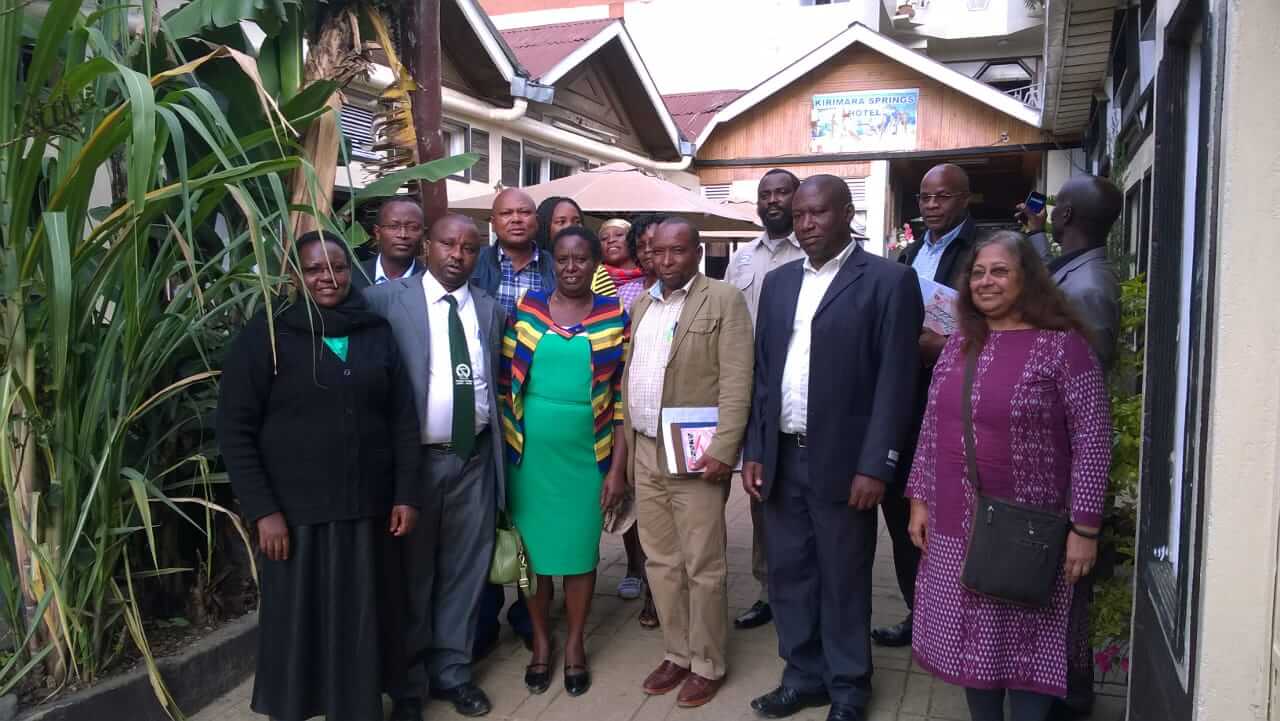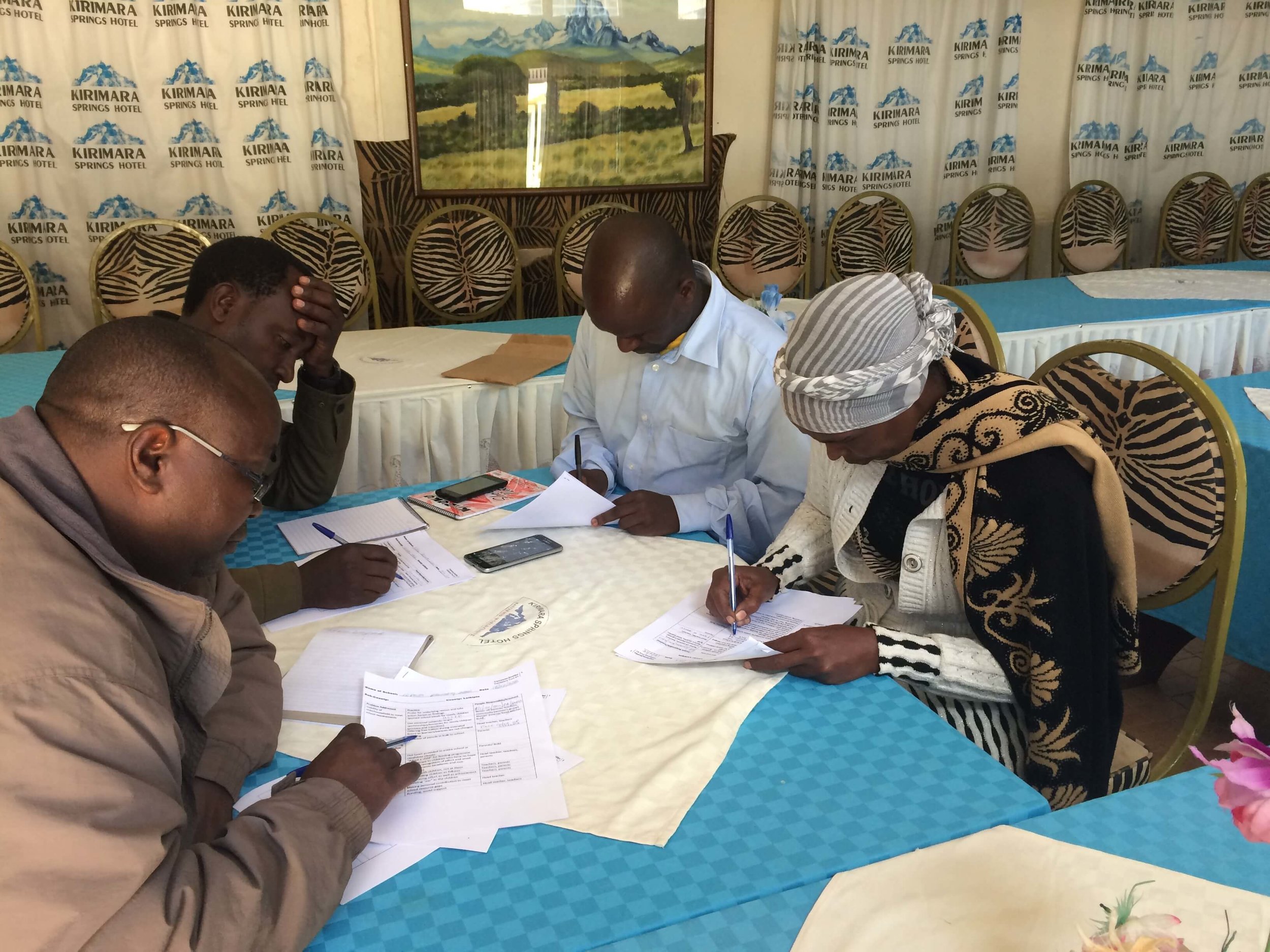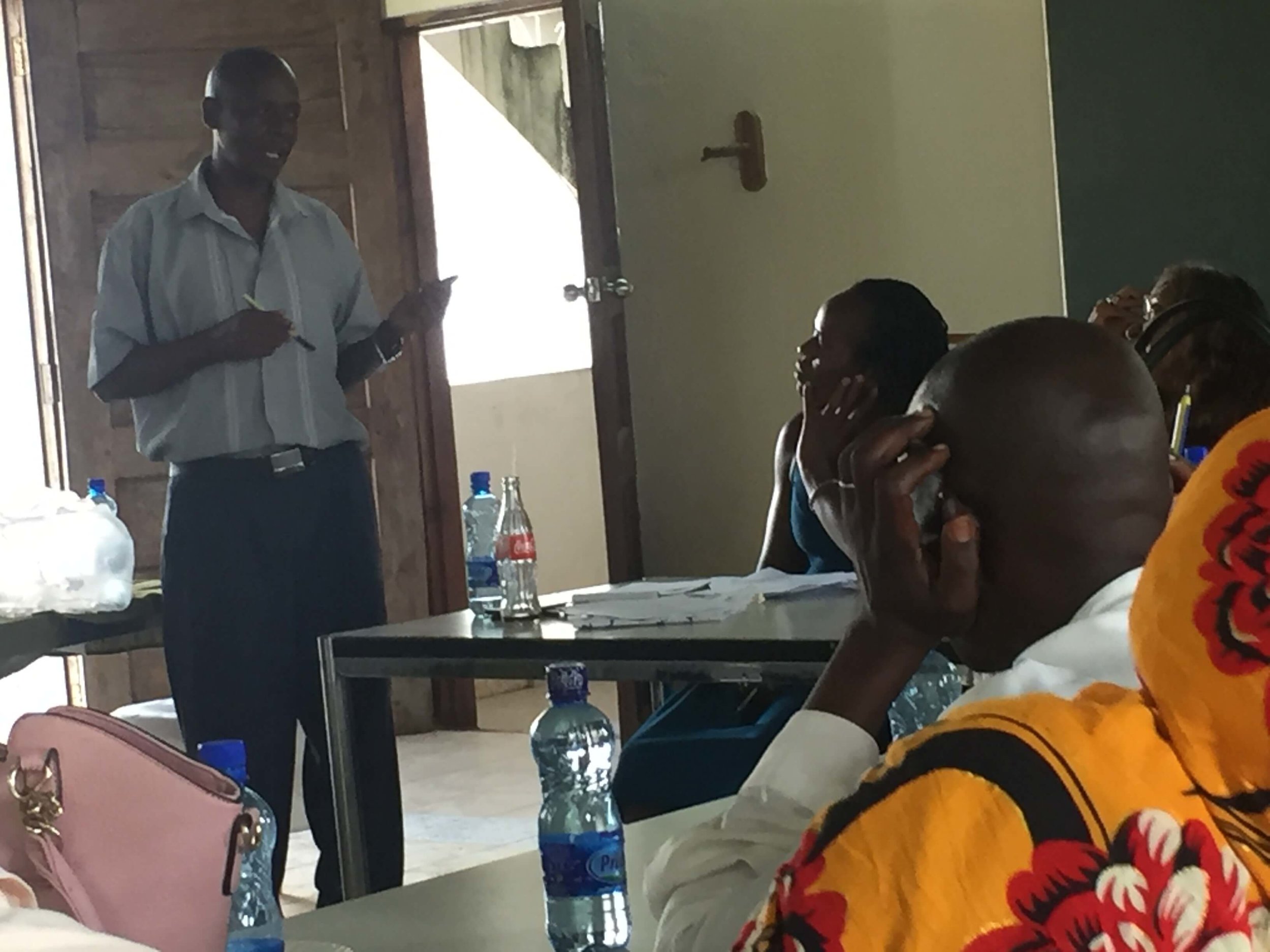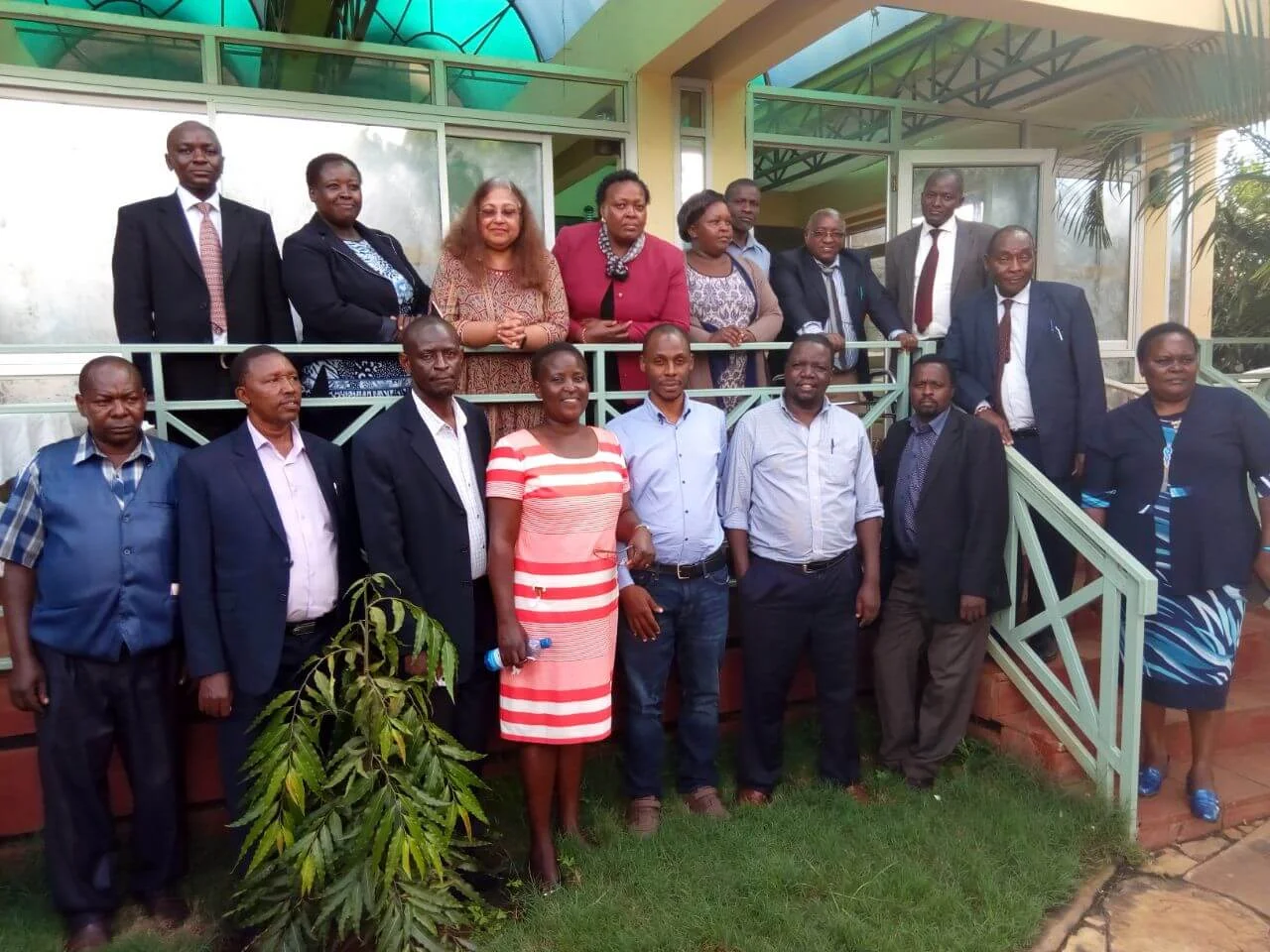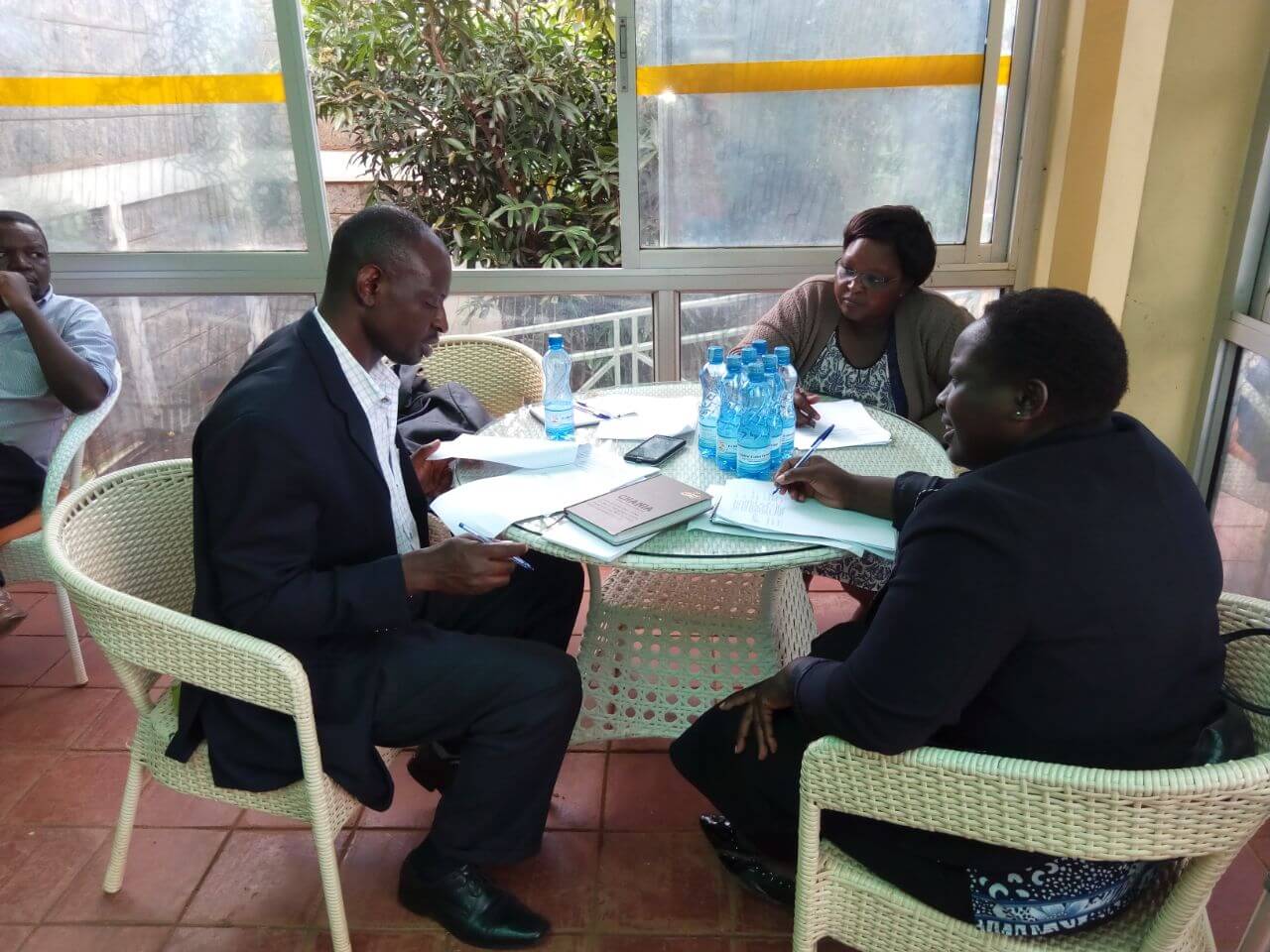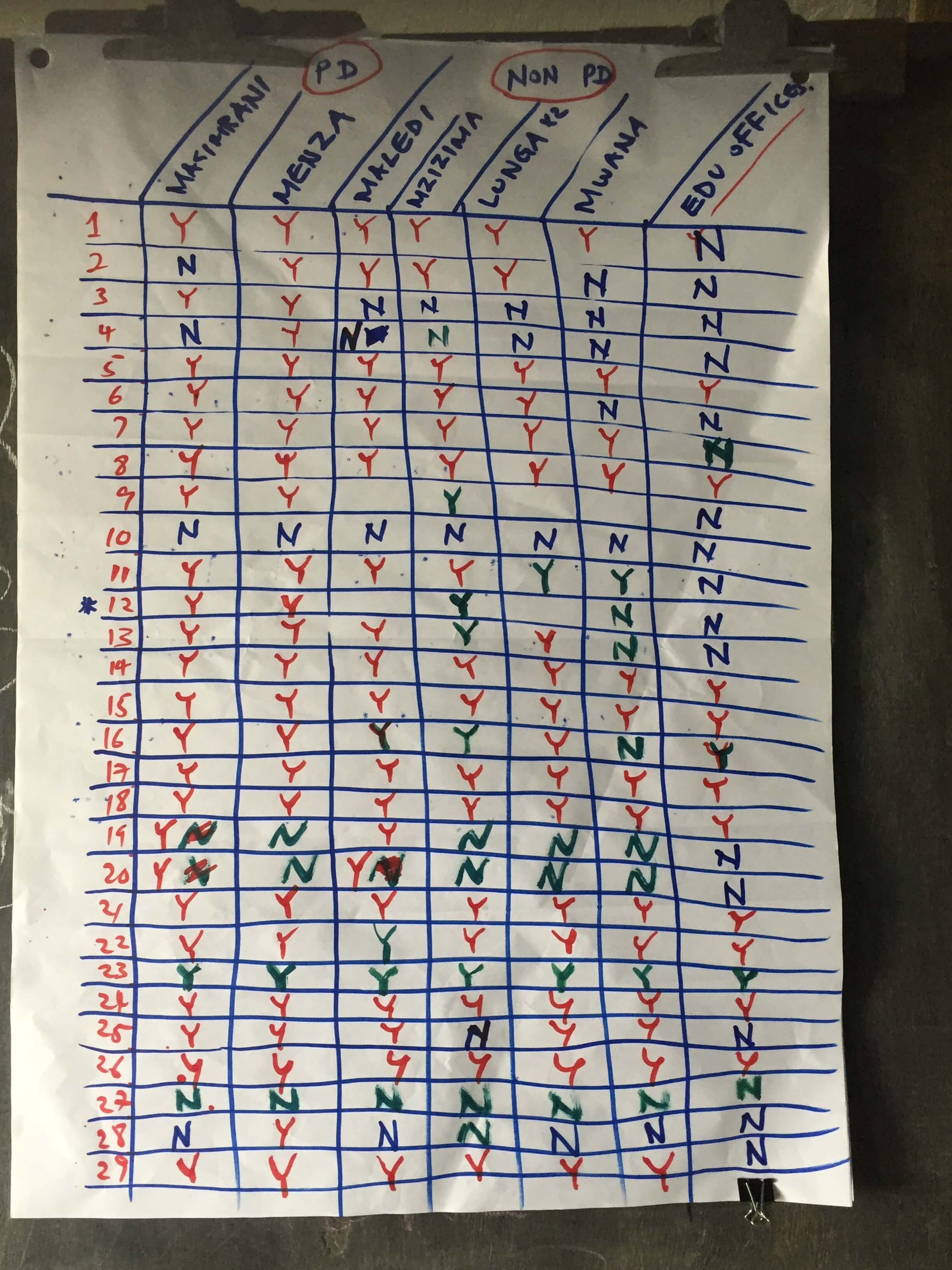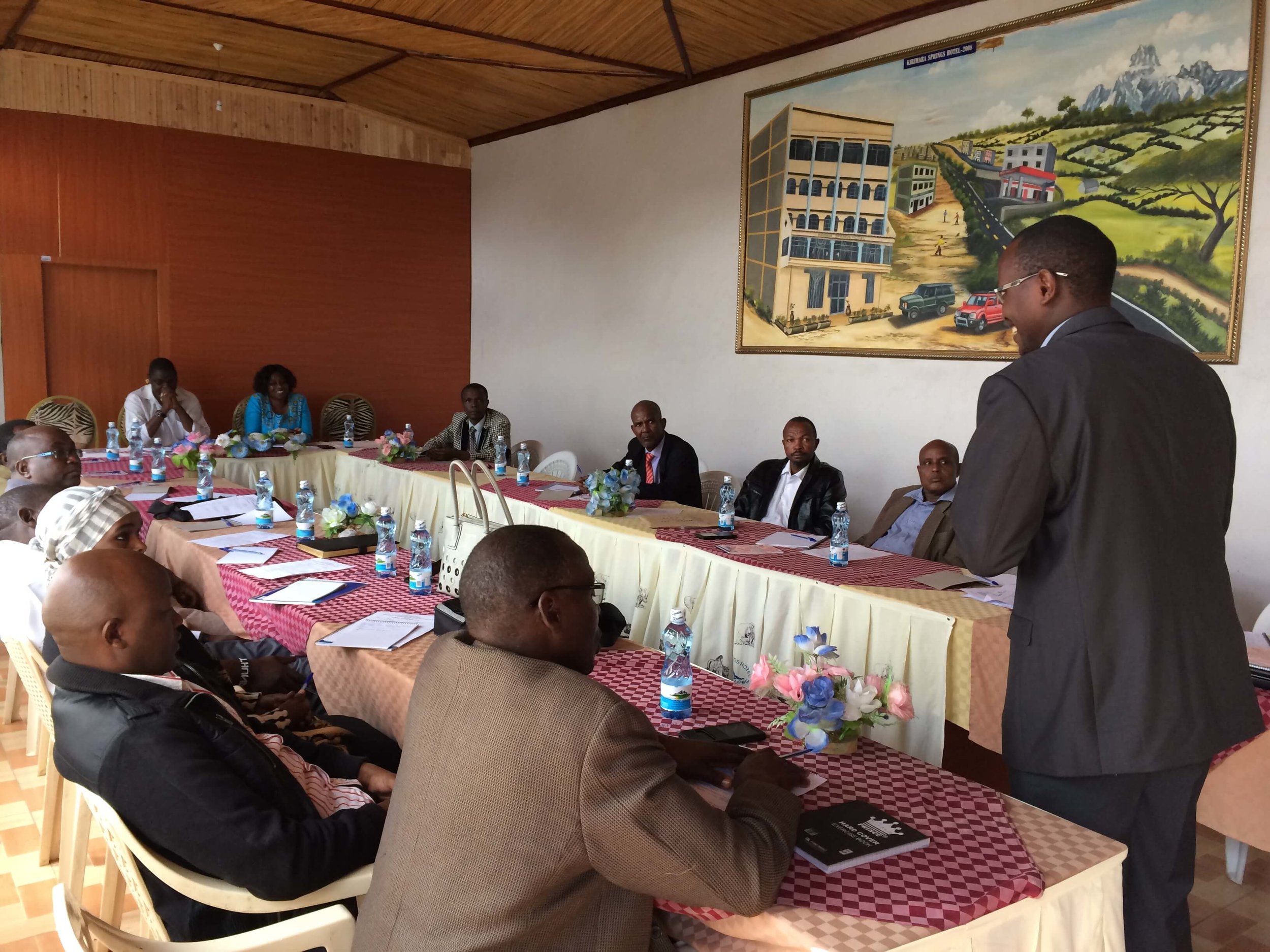Ideas & Evidence Conference, Dar-es-Salaam, March 2018
The Ideas & Evidence Conference was a two-day event convened by Twaweza East Africa on 6-7 March, 2018 to discuss recent research and implementation experience related to citizen agency, governance, transparency and accountability. Its aim was to inform Twaweza’s new 2019 strategy through the discussion of evidence of what works in governance and education. The main topics of the event were organized around four main themes:
The possibility and promise of citizen participation.
Innovations in citizen-state dialogue and interaction.
Working with the grain locally: influencing sub-national governance and service delivery.
Getting into the system: integrating evidence-based initiatives into government.
The politics of evidence: role of research & evidence in contexts of changing civic space.
Dr. Wamahiu was a speaker in the third panel, that is, “Working with the grain locally”. She presented a talk entitled “The Domino Effect: Leadership in PD Schools in Kenya”. Simply defined, a domino effect is when one event causes another similar effect, which in turn provokes another event, and so on and so forth. In her presentation she used the metaphor of the domino effect to describe the positive influence of head teachers in PD schools on others they interact with in the school community … the teachers, parents, school boards, communities and of course the children … to bring about meaningful changes in policies, practices, behaviours and attitudes.
The observed that head teachers in PD schools are diverse in terms of their experience, qualifications and leadership styles. However, they are united in their optimism, in their belief that success breeds success; and inclusiveness. They combine compassion, empathy, creativity, and delegation with self-discipline, critical thinking, and a focus on results.
She related stories of two schools that demonstrated PD practices and outcomes. The first story was about how new leadership enabled the school to climb to being the best performing its position as the worst in the zone in a few years time. The head teacher invested time in building trust between the community and the school; gaining parental support; removing unethical teachers and inspiring learners.
In the second story, the in-coming head teacher found a school where his predecessor had laid a solid foundation. He built on it. He role modelled instructional leadership, utilised existing resources to create teaching and learning aids, built the capacity of teachers through peer-to-peer learning strategies and having an open door policy for teachers, parents and learners. The school remains among the top performing public schools in its locality.
Related Reading: Positive Deviance in action: the search for schools that defy the odds in Kenya (From Poverty to Power, Oxfam Blogs)
B. Highlights of the PD Validation Workshops, April - May 2018
The findings of the positive deviance (PD) study conducted in 2017 in Kenya were validated between April and May of 2018 through a series of five workshops. The validation exercise constituted the fourth and final stage of a study that was conducted by Jaslika Consulting between February 2017 and May 2018. Commissioned by Twaweza East Africa, the workshops were convened in each of the sub-counties where the PD schools were located. Their main purpose was to “spread knowledge in practice” by providing learning opportunities to other education stakeholders from within the same resource constrained environments as the “discovered”PD schools.
The search for positive deviance (PD) schools In Kenya began in February 2017. The journey came to an end after nine months of search that initially took us to 14 well performing public primary schools in five counties that performed below the national average in national primary school leaving examinations, commonly known as KCPE. The counties were Kitui, Kwale, Laikipia,Meru and Muranga. Rapid assessments of these schools helped us to narrow the schools down to six located in five sub-counties of Kwale, Laikipia and Muranga in the Coast, Rift Valley and Central regions of Kenya respectively. In making the final selection of what the team believed to be PD schools, the type of school leadership, the extent to which they welcomed participation and engaged parents and the community, teacher effectiveness, and the extent to which they respected child rights were considered. The first phase, which was initiated internally by Twaweza, involved the generation of a preliminary shortlist based on the desk analysis of KCPE performance data of 17,112 eligible primary schools in the country for three consecutive years (2013 –2015). This formed the basis for the selection of the phase two scoping component.
Three counties hosted the workshops which attracted 76 participants (19 from PD schools, 41 from non-PD schools and 16 Education Officials (inclusive of representatives of the Kenya National Union of Teachers [KNUT] and the Kenya Primary Schools Head teachers’ Association [KEPSHA]). That only a third of the participants were women, was reflective of the persisting gender disparities in educational leadership in Kenya. Also in attendance were Nairobi-based representatives of Twaweza East Africa. Joining the Muranga workshops was the Kampala-based Twaweza Senior Programme Officer of What Works in Education.
Facilitated by Jaslika Consulting, the workshops combined plenary sessions with group work. The preliminary sessions across all workshops were interactive, aimed at getting participants’ perspectives on good school leadership and their expectations through fun, relaxing activities. There were no formal opening or closing sessions. The senior most Education Official present at each event was asked to close the workshops. In Kandara and Muranga South, the Sub-‐County Director of Education and TSC Director respectively, delivered Opening Remarks while in Lunga Lunga, it was delivered by the County Education Director who joined the meeting briefly.
The workshops were organized around four substantive sessions that included the validation of the discovered practices and behaviours, the sharing of PD practices and behaviours, and the identification of replicable practices and practices.
The representatives from the six PD schools were provided with a dedicated platform to share their insights with their peers from non-PD schools. The insights were based on selected practices and behaviours, which in their view contributed to their success despite operating in resource-constrained environments. The non-PD schools learnt from their experiences, gaining a deeper understanding of the triggers that helped the PD schools to achieve above average learning outcomes while most other schools operating in similar contexts were unable to do so.
Overall, all the six PD schools were able to pick out the “discovered” practices and behaviours relevant to their context from a menu of that had been prepared by Jaslika ahead of the workshops. The “menu” was a tool used to validate the findings around three emerging themes: Effective and efficient management, education quality and empathy. It was customised to the specific study counties. The Education Officials confirmed that most of the practices identified as PD were not common, basing their assertions on observations made when monitoring schools across their areas of jurisdiction.
In conclusion, the workshops achieved their objectives which were to validate the findings and share the PD practices with non-PD schools and other stakeholders. However, from the experience, it also emerged that there is no one-shoe-fits-all solution; rather what is critical is the particular permutation of practices and behaviours and the way they are delivered. That is what makes a difference.
Sources:
Wamahiu, Sheila “PD Validation Workshop Report” Jaslika Consulting commissioned by Twaweza East Africa Nairobi 21 May 2018
Nthiga, Purity “PD Validation Workshop Report - Laikipia East” Jaslika Consulting April 2018
Mukundi, Samuel “PD Validation Workshop Report - Laikipia North” Jaslika Consulting April 2018
Ondicho, Naom “PD Validation Workshop Report - Muranga Central” Jaslika Consulting May 2018
Magero, Declan and Indoshi, Concilliah “PD Validation Workshop Report - Lunga Lunga” Jaslika Consulting April 2018
Relevant links:

